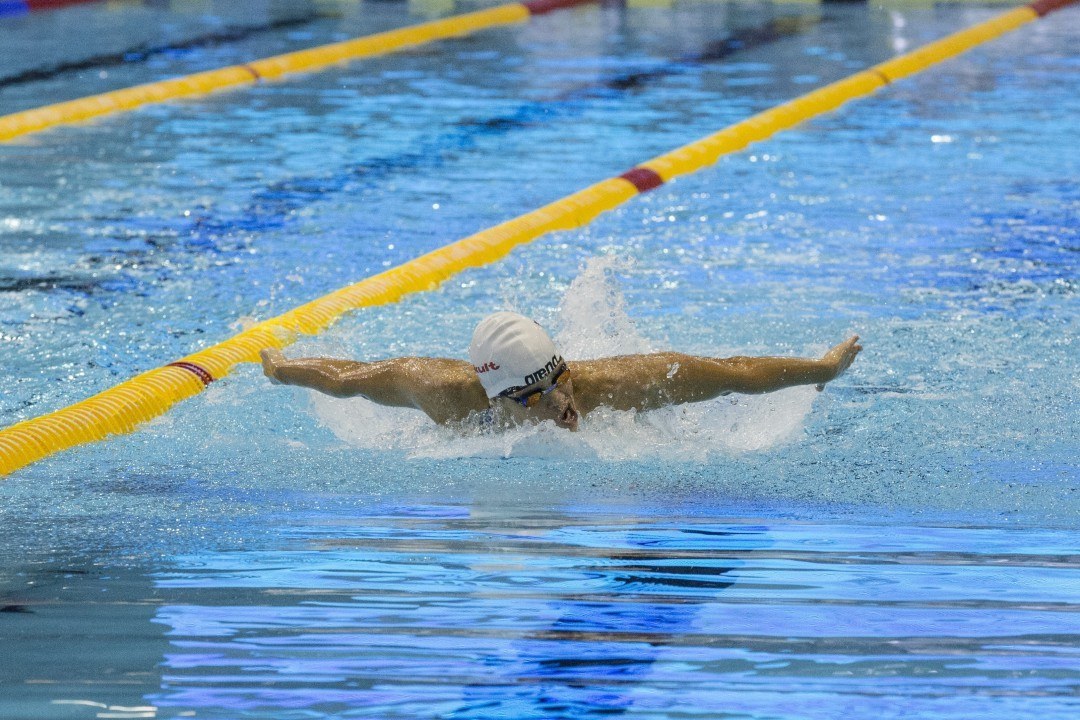This week, the German Swimming Federation (DSV) declared on their website (dsv.de) the names of the swimmers for the different German squads.
In the A-squad are (with birth years):
On the women’s side, they announced only four pool swimmers: Franziska Hentke (1989), Sarah Köhler (1994), Jenny Mensing (1986), Alexandra Wenk (1995) and for the open water swimmers: Isabelle Härle (1988).
On the men’s side, the team has more members: Paul Biedermann (1986), Steffen Deibler (1987), Hendrik Feldwehr (1986), Christoph Fildebrandt (1989), Jan-Philip Glania (1988), Jacob Heidtmann (1994), Marco Koch (1990), Clemens Rapp (1989), Florian Vogel (1994).
Some long time national A-Team members are now found in the B-squad, like Dorothea Brandt or Christian Diener, who was the silver medalist in the 200 m backstroke at the 32nd European Championships 2014 – but this competition isn’t a criteria for the 2015/2016 season.
The reason is that the DOSB (German Olympic Sports Federation) has changed the nomination criteria for the German swimmers to make the A squad, which is Germany’s most prestigious and selective team.
The full announcement comes from the German Swimming Federation’s website in September. A quick translation:
“The DOSB (German Olympic Sports Federation) has changed its A-squad criteria for the appointment of the DSV national squad (A-squad). These changes will be incorporated in the appointment criteria of the DSV immediately. The A-Team criteria are defined solely and exclusively by the DOSB (German Olympic Sports Federation).”
There are different squads in Germany:
- A-squad, the best German swimmers who compete on world class level – the DOSB (German Olympic Sports Federation) defines the criteria for the A-squad.
- B-squad, athletes who have a recognizable and traceable performance development and may ascend into the A-squad in the medium term.
- C-squad, the squad for the next generation, the athletes with the highest medium to long-term success perspective to international elite sport and promising participants in international competition highlights at youth level.
The major changes concern only the A squad. Belonging to a squad always covers a period of about a year, then the teams will be renamed based on two qualification periods. For the 2015-2016 squads, these periods are from November 24, 2014 to April 12, 2015 and from June 2, 2015 to August 6, 2015. The A-squad has well-defined criteria, which have now been changed: Swimmers must reach a place of 1-8 at World Championships or Olympic Games in an individual event or a relay (this also applies for the athletes who swim in prelims) OR in years without World Championships/Olympics, German swimmers must finish on the podium in a single or relay event.
For the 2014/2015 season, swimmers reached the A-squad with place 1-10 at World Championships or Olympic games or a 1-6 place finish at European Championships.
Belonging to the A squad of course brings more financial support in addition to opportunities to participate in training camps or in international competitions. With the new criteria, for example Dorothea Brandt loses her A-squad status because she finished 10th in the 50 m freestyle in Kazan and Christian Diener 9th in the 200 m backstroke. Swimmers like Hendrik Feldwehr jumped into the A squad with their perfomances in Russia at World Championships because he participated in Kazan in a final – Feldwehr in the 100 m breaststroke.
Here you can find the complete roster:
http://www.dsv.de/fileadmin/dsv/documents/schwimmen/Amtliches/150929_Kaderliste_Schwimmen_15_16.pdf

The fixtures are set for the playoffs to get into the 2016 European Championship in France. The match-ups between the eight teams vying for the four final spots all look pretty even. The highlight is a Nordic “derby.” For the first time since 1984, the Netherlands have failed to qualify for the European Championships. After being defeated by the Czech Republic at home, the football-mad nation’s humiliation was complete.
Well the men’s a team is the best they could get really, but the women’s team is bad.